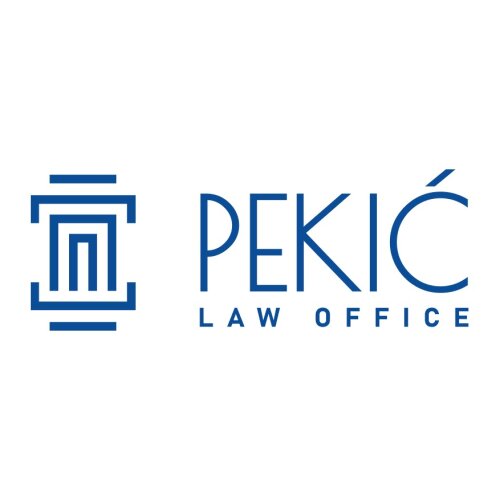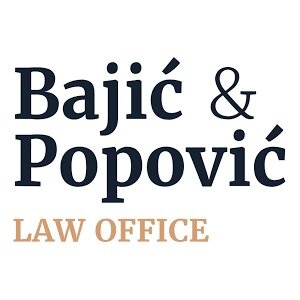Best Banking & Finance Lawyers in Serbia
Share your needs with us, get contacted by law firms.
Free. Takes 2 min.
Or refine your search by selecting a city:
List of the best lawyers in Serbia
Legal guides written by Business Law office - Advokatska Kancelarija:
- Why Invest In Serbia
About Banking & Finance Law in Serbia
Banking & Finance law in Serbia encompasses a broad array of financial activities, including loans, securities, compliance, and regulation of financial institutions. The sector is primarily regulated by the National Bank of Serbia, which ensures financial stability, supervises financial institutions, and enforces various financial laws and regulations. Serbia has been working towards harmonizing its financial regulations with European Union standards, given its candidate status for EU membership. This includes adjustments in the areas of money laundering prevention, consumer credit, digital financial services, and electronic transactions. The growing complexity of financial markets and regulations makes legal expertise invaluable.
Why You May Need a Lawyer
Individuals and businesses may require legal assistance in the Banking & Finance sector for various reasons. Common situations include the negotiation and drafting of complex loan agreements, ensuring compliance with national and international financial regulations, handling disputes between financial institutions and clients, advising on mergers and acquisitions or other corporate finance transactions, and managing issues related to investment management. Legal guidance is also critical during audits by the National Bank of Serbia or other regulatory bodies, and when dealing with insolvency or restructuring matters. A lawyer's expertise can help navigate these intricate financial processes and protect clients' interests.
Local Laws Overview
Serbia's financial legal framework is comprised of numerous key laws and regulations that address different aspects of the sector. The Law on Banks regulates the establishment, operation, and supervision of banks. The Law on the Capital Market oversees securities and financial instruments. The Anti-Money Laundering and Counter-Terrorism Financing Law is critical in ensuring compliance with international standards. The Consumer Protection Act includes provisions specific to financial services, ensuring fair treatment of consumers. It is essential for stakeholders in the financial sector to understand these laws and adhere strictly to their provisions.
Frequently Asked Questions
What is the role of the National Bank of Serbia?
The National Bank of Serbia is responsible for maintaining financial stability, supervising financial institutions, implementing monetary policy, and enforcing banking regulations to ensure a sound financial system.
Are there special regulations for foreign banks operating in Serbia?
Yes, foreign banks are subject to specific registration and regulatory requirements, including obtaining a license from the National Bank of Serbia and adhering to local banking laws.
What should I do if I suspect my bank of misconduct?
You should report any suspected misconduct by your bank to the National Bank of Serbia, and it may be advisable to consult with a legal professional to explore your options.
Is consumer protection applicable to financial services in Serbia?
Yes, the Consumer Protection Act includes provisions that specifically address the rights and protections for consumers using financial services in Serbia.
How are financial disputes resolved in Serbia?
Financial disputes can be resolved through mediation, arbitration, or litigation. Engaging a lawyer can help determine the most suitable method for resolution.
What are the key considerations in financing a business in Serbia?
Key considerations include understanding interest rates, tax implications, security requirements, and ensuring compliance with all relevant local and international regulations.
How does Serbia regulate digital banking services?
Serbia has introduced regulations that govern electronic transactions and digital banking to ensure security, privacy, and consumer protection in line with EU standards.
What is the process for a merger or acquisition in the Serbian banking sector?
The process involves legal due diligence, negotiation, drafting of agreements, and obtaining necessary regulatory approvals from bodies such as the National Bank of Serbia.
Can individuals challenge bank charges or fees?
Yes, individuals have the right to challenge any charges or fees they consider unfair by first discussing with the bank, and if unresolved, pursuing legal channels for redress.
What are the penalties for non-compliance with banking regulations in Serbia?
Penalties can include fines, restrictions on business operations, or revocation of licenses, depending on the severity of the non-compliance.
Additional Resources
Individuals seeking legal advice in Banking & Finance can consult several resources for assistance. The National Bank of Serbia's website provides comprehensive regulatory information. The Serbian Chamber of Commerce offers resources for businesses. Law firms specializing in financial law can provide expert legal services. For consumer protection matters, the Consumer Protection Agency can be a useful contact.
Next Steps
If you require legal assistance in Banking & Finance in Serbia, consider contacting a reputable lawyer or law firm that specializes in financial law. Begin by gathering relevant documents and information about your situation. Schedule a consultation to understand your legal position and get specific guidance on how to proceed. It is also prudent to stay informed about any changes in local laws that may affect your financial interests.
Lawzana helps you find the best lawyers and law firms in Serbia through a curated and pre-screened list of qualified legal professionals. Our platform offers rankings and detailed profiles of attorneys and law firms, allowing you to compare based on practice areas, including Banking & Finance, experience, and client feedback.
Each profile includes a description of the firm's areas of practice, client reviews, team members and partners, year of establishment, spoken languages, office locations, contact information, social media presence, and any published articles or resources. Most firms on our platform speak English and are experienced in both local and international legal matters.
Get a quote from top-rated law firms in Serbia — quickly, securely, and without unnecessary hassle.
Disclaimer:
The information provided on this page is for general informational purposes only and does not constitute legal advice. While we strive to ensure the accuracy and relevance of the content, legal information may change over time, and interpretations of the law can vary. You should always consult with a qualified legal professional for advice specific to your situation.
We disclaim all liability for actions taken or not taken based on the content of this page. If you believe any information is incorrect or outdated, please contact us, and we will review and update it where appropriate.
Browse banking & finance law firms by service in Serbia
Serbia Attorneys in related practice areas.
Browse banking & finance law firms by city in Serbia
Refine your search by selecting a city.

















